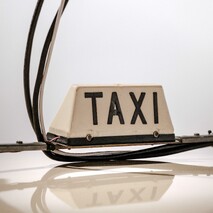Major New GST Changes coming
Please see our Facebook posts about the real world effects of the changes at the following link: 2024 GST changes in plain English
Technical details also below – we will handle all of this if you are a client.
1. These GST changes currently affect Ridesharing, food and beverage delivery and taxable accommodation (Airbnb etc).
From 1 April 2024 the supply of these services made through an electronic marketplace will be subject to GST regardless of the GST registration status of the supplier (Uber driver etc). The marketplace operator such as Uber will be responsible for collecting the GST and passing it on to IRD.
2. Flat rate credit – non GST registered drivers will receive a credit from Uber etc of 8.5% of the fare (This percentage was determined with reference to the average amount of input tax deducted by GST-registered taxi drivers and holiday homeowners.). The remaining 6.5% will be passed to IRD by Uber. This is to recognise the GST incurred when an unregistered driver pays gst on petrol, mobile phones etc
Note: A driver earning less than $60k (gross customer fares) can still voluntarily register for GST (in that case the flat rate credit would not apply and they would claim gst back for expenses in the normal way. If earning over $60k in any 12 month period you must register for GST. Since this is currently based on gross fares, if you average over approx $800 - $900 net per week in the hand from Uber you should probably register from 1 April.
Note: once gst registered you will need to account for gst on ALL taxable supplies and also account for gst on disposal of assets.
3. The situation for gst returns could get a bit complicated if an Uber driver also has income not earned on an online platform (for example taxi driving). Uber income would need to be listed in the zero rated box as he is now deemed to make those supplies to Uber, not the customer, and taxi income would need to be put in total sales and income box
4. Income tax applications:
GST registered drivers will account for income and expenses as gst exclusive as per normal.
Non gst registered drivers will account for Platform income as gst exclusive. Expenses related to the platform will be exclusive and expenses related to other taxable supplies will be gst inclusive.
The flat rate credit will not be included as income.
5. Mixed use expenditure: If a driver has expenses that relate to income earned on both Uber and a non marketplace – for example his own non gst taxi business they will need to make adjustments as they can only claim expenses on a gst inclusive basis for the portion that did not relate to Uber etc.
6. The service fee charged by Rasier NZ/Uber will reduce by 6% for non gst registered drivers. For non gst drivers who signed up after 2016 this means the Uber fee will drop from 28% to 22%.
7. The service fee is calculated on the gst inclusive fares
8. The 8.5% flat rate credit will be based on net fares after gst
Why use a tax agent for Uber driving and what expenses can I claim?
Why use a tax agent?
- Have confidence that your tax return has been completed correctly. We stay up to date on all IRD and rideshare related changes and have developed software to check Uber income and fees correctly.
- Know that your tax bill has been minimised as much as possible
- Have someone you can always call on for tax queries and earnings statements for vehicle/property finance applications, “working for families”etc
Uber tax returns
Tax returns can be sorted via email/phone wherever you are in the country or world!
Very affordable fixed price fees from $215.
Up until now the IRD have seemed to turn a blind eye to the large number of drivers not doing tax returns. However, that appears to be changing so it would be wise to get your return done now (Rideshare Consultants is an IRD approved Tax Agent).
What expenses can I claim?
To pay the least income tax possible you will want to deduct your business related expenditure from your income. We can provide you with a full list of all the expenses you can claim including some you may not have considered.
Income tax and GST
As an "independent provider of transportation services" you will be responsible for your own taxes when driving for rideshare companies. Using Uber as an example your total or gross revenue/turnover will be the fares that the customers pay (standard fares, surge, cancellation fees, waiting time, booking fees, airport tolls) not just what comes into your bank account. You are then able to deduct the rideshare related expenses (including the Uber fee) you have incurred, to calculate your taxable profit. (To address the confusion of some drivers, income tax and GST are separate taxes. Everyone needs to pay income tax, but not all drivers need to register for GST - see below).
Under IRD rules if your gross revenue/turnover is over $60,000 per year, or your prices include GST you need to register for GST (this does not include paye salary/wages from another job you may have). So if the total fares that customers have paid for your services is over or likely to be over $60k you will need to register for GST.
Please contact us if you would like to discuss your situation.
© 2023 Rideshare Consultants Limited




